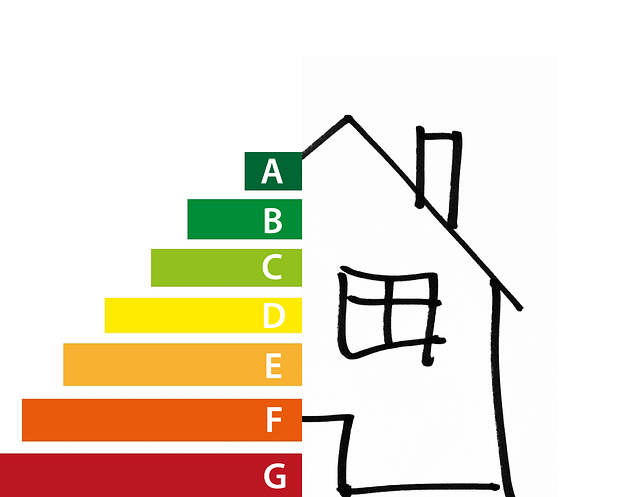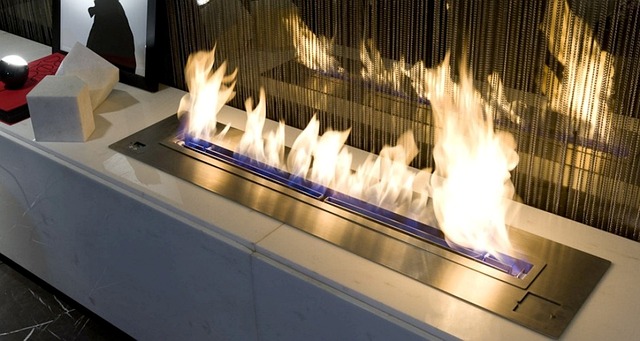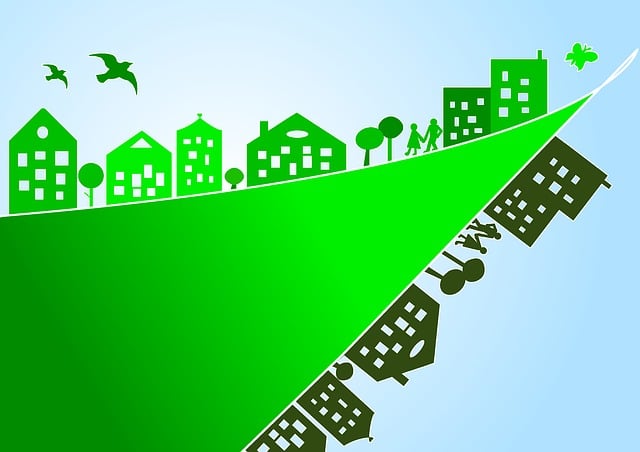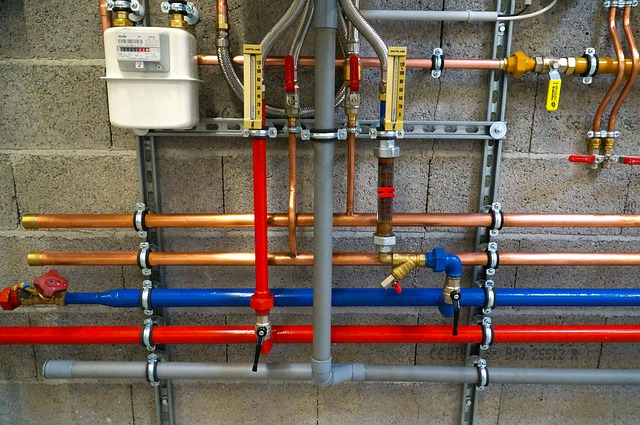Modern water softeners and eco-friendly plumbing solutions combine energy efficiency, sustainability, and smart technology. Key features include low-flow fixtures for reduced water usage, tankless heaters minimizing energy waste, rainwater harvesting for resource conservation, and smart monitoring to optimize performance. These innovations, crafted from sustainable materials, empower homeowners to adopt greener practices while promoting environmental consciousness in the plumbing industry.
Looking for ways to make your home more energy efficient and environmentally friendly? Consider installing energy-efficient water softeners—a key component in modern, eco-conscious plumbing. This article explores innovative solutions like low-flow fixtures, tankless heaters, rainwater harvesting, and smart monitoring systems, all designed to reduce water waste and promote sustainable living. Discover how these green approaches revolutionize your plumbing while preserving our planet’s precious resources.
- Understanding Energy-Efficient Water Softeners: A Green Approach to Plumbing
- Eco-Friendly Plumbing Solutions: Low-Flow Fixtures and Their Impact
- Tankless Heaters: Revolutionizing Water Heating Efficiency
- Sustainable Water Management: Rainwater Harvesting and Smart Monitoring
Understanding Energy-Efficient Water Softeners: A Green Approach to Plumbing

Water softeners have traditionally been known for their high energy consumption, but modern innovations in eco-friendly plumbing offer a game-changing approach. Energy-efficient water softeners are designed to reduce water and energy usage, making them a sustainable choice for homeowners looking to implement green practices. These systems often incorporate low-flow fixtures and tankless heaters, ensuring efficient water heating without excessive energy waste. By utilizing rainwater harvesting techniques, you can further decrease your reliance on municipal water supplies and contribute to conservation efforts.
Additionally, smart monitoring technologies play a crucial role in optimizing energy efficiency. These advanced systems allow you to track water usage patterns and adjust softener settings accordingly, minimizing unnecessary energy consumption. With sustainable materials and innovative designs, modern water softeners offer an environmentally conscious solution without compromising performance, making them an attractive option for those seeking eco-friendly plumbing solutions.
Eco-Friendly Plumbing Solutions: Low-Flow Fixtures and Their Impact

The journey towards a greener home extends beyond energy-efficient appliances and includes exploring eco-friendly plumbing solutions. One significant aspect is adopting low-flow fixtures, such as water-saving showerheads and faucets. These innovations reduce water consumption without compromising performance, aligning with the global push for sustainability. By installing these fixtures, homeowners can contribute to water conservation efforts while lowering their environmental footprint.
Beyond low-flow fixtures, other eco-conscious plumbing options include tankless heaters, which heat water on demand, eliminating the energy waste associated with heated water storage tanks. Rainwater harvesting systems collect and store rainwater for various uses, further reducing reliance on municipal water supplies. Additionally, utilizing sustainable materials in plumbing installations, like biodegradable pipes and fittings, minimizes the environmental impact of home infrastructure. Smart monitoring technologies also play a role, allowing homeowners to track water usage and identify areas for improvement, ensuring efficient water management.
Tankless Heaters: Revolutionizing Water Heating Efficiency

Tankless heaters are a game-changer in water heating efficiency, offering a significant shift from traditional tank-based systems. These innovative devices heat water on demand, eliminating the need for constant storage and reducing energy consumption. By adopting tankless heaters, homeowners can embrace eco-friendly plumbing practices while enjoying the benefits of instant hot water. This approach aligns with sustainable materials and low-flow fixtures, further enhancing water conservation efforts.
One of the key advantages is their integration with rainwater harvesting systems, allowing for a more comprehensive and efficient use of natural resources. Moreover, smart monitoring capabilities enable users to track their water usage, promoting mindful consumption. In today’s world, where energy efficiency and environmental responsibility are paramount, tankless heaters present a compelling solution for those seeking to minimize their carbon footprint through practical, everyday changes.
Sustainable Water Management: Rainwater Harvesting and Smart Monitoring

In the pursuit of sustainable water management, homeowners and businesses are increasingly turning to eco-friendly plumbing solutions. One such innovation is rainwater harvesting—collecting and storing precipitation for later use, reducing reliance on conventional water sources. This not only conserves valuable resources but also contributes to a more robust, resilient water infrastructure. By integrating smart monitoring systems with these practices, users can optimize water usage further. Advanced technologies allow for real-time tracking of consumption patterns, enabling efficient identification and correction of wastage.
Complementing rainwater harvesting are low-flow fixtures and tankless heaters—essential components in any modern, sustainable plumbing system. Low-flow fixtures, such as faucets and showerheads, significantly reduce water consumption without compromising performance. Tankless heaters, on the other hand, heat water only when needed, eliminating the energy waste associated with traditional storage tanks. Together, these innovations represent a holistic approach to water conservation, aligning with broader efforts to transition towards sustainable materials and practices in the plumbing industry.
